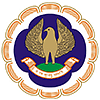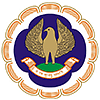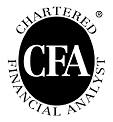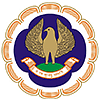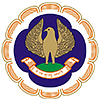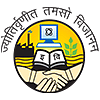B.Com Cooperation Syllabus and Subjects

BCom Cooperation subjects is a three year long undergraduate programme that deals with management of co-operative enterprise, managing a business, and voluntary sector organizations etc. The B.Com Co-operation course also aims to prepare students towards entrepreneurship and competing for the co-operative opportunities in the industry.
The B.Com Cooperation job scope is extensive, ranging in both private and public sectors. Candidates have many job roles such as Business Analysts, BookKeeper, Entrepreneurship, Financial Analyst, Investment Analysts, etc.
Table of Contents
B.Com Cooperation Subjects
B.Com Cooperation subjects cover important topics that imparts candidates with relevant skills and knowledge that is required to manage and run a cooperative society or institution. The Bcom cooperation is divided into two parts: core and electives which are listed beliw:
B.Com Co-operation Core Subjects
The core BCom Cooperation subjects list is given below.
- Quantitative Techniques for Business
- Theory and Development of Co-operation
- Business Organisation
- Marketing Management
- English
- Co-operative Finance and Banking
- General and Co-operative Accounts
- Producers’ Cooperatives
- Cooperative Management
- Management Accounting
- Cooperative Accounting and Audit
- Cooperative Production Trading and Services
- Cost Accounting
- Cooperative Credit and Banking
- Theory and Practice of Banking
- Cooperation Theory and Development
B.Com Co-operation Elective Subjects
The BCom Cooperation subjects offer electives which can be chosen by the candidates. Some of the elective subjects are as follows:
- Environmental Studies
- Soft Skills
- Computer Applications to Co-operatives
- Office Management and Secretarial Practice
- Mathematics I Elements of Econometrics
- Value Education General Awareness
- Office Automation
- SHG Management
- Computer and Internet
- Consumerism
- E-Banking Practices
- Entrepreneurial Development
- Salesmanship
BCom Cooperation Subjects in Detail
BCom Cooperation subjects focuses on candidates gaining skills required in the management and maintainence of commercial aspects of cooperative institutes. Listed below are some of the subjects in detail:
| BCom Cooperation Subjects | Topics Covered |
| General and Cooperative Accounts | Book Keeping , Objects, Double entry, Journal, Subsidiary records, Ledger Postings and balancing, Bank Reconciliation Statement. |
| Co-Operative Finance and Banking | Co-operative Credit, Evaluation and structure of Co-operative Credit, Movement in India, Rural and Urban, Agricultural and nonagricultural, RRB, Commercial Banks, RBI, NABARD. |
| Business Organisation | Forms of Business Organizations , Sole Trader, Partnership Firm, Joint Hindu Family Firm, Joint Stock Companies, Co-operative Undertakings, Public Utilities, Public Enterprises. |
| Producers Cooperatives | Co-operative processing societies, Factors needed to organize them, Working of various types of processing societies, Fruit processing societies, Role of NCDC, Role of warehousing. |
| Co-Operative Management and Administration | Co-operative management, Democratic control, Functional areas of management in co-operatives, Evaluation of performance of cooperatives, Cooperative Administration. |
Semester Wise B.Com Cooperation Syllabus
The BCom Cooperation syllabus is designed to ensure that the students have access to all the vital information about cooperative institutions they need. In the the table below are the BCom Cooperation subjects list as semester-wise:
B.Com Co-operation First Year Syllabus
The B.Com Cooperation subjects from the first-year syllabus are detailed below:
|
Semester I |
Semester II |
|
Financial Accounting I |
Financial Accounting II |
|
Business Organisation |
Co-operative Finance and Banking |
|
Office Management and Secretarial Practice |
Cooperation Theory and Development |
|
Environmental Science |
Business Regulatory Framework |
|
English |
General and Co-operative Accounts |
|
Language |
Mathematics I- Elements of Econometrics |
B.Com Co-operation Second Year Syllabus
The BCom Cooperation subjects from the second year syllabus are detailed below:
|
Semester III |
Semester IV |
|
Quantitative Techniques for Business- I |
Quantitative Techniques for Business- II |
|
Financial Markets and Operations |
Entrepreneurship Development and Project Management |
|
Producers’ Cooperatives |
Cooperative Production Trading and Services |
|
Theory and Practice of Banking |
Co-operation- Management of Co-operative Enterprises |
|
Office Automation |
Principles of Management |
|
Marketing Management |
Cost Accounting |
B.Com Co-operation Third Year Syllabus
The B.Com Cooperation subjects from the third-year syllabus are detailed below:
|
Semester V |
Semester VI |
|
Financial Management |
Advertisement and Sales Management |
|
General and Cooperative Audit |
Business Laws for Co-operatives |
|
Introduction to Marketing |
Business Law |
|
Co-operation- Co-operative Legal System |
Management Accounting |
|
Banking Theory, Law and Practice |
Co-operative Entrepreneurship Development |
|
E-Banking Practices |
Co-operation-Co-operative Legal System |
|
Institutional Visit |
Project Work / Internship training |
B.Com Cooperation Course Structure
BCom Cooperation subjects are well-structured and include core and elective subjects. The aspirants can choose electives based on their interest and the research-based projects at the end of the last year. The following points represent the important components of the BCom Cooperation course curriculum:
- VI Semesters
- Core Subjects
- Elective Subjects
- Research Project
- Internships or Work placements
B.Com Co-Operation Teaching Methodology and Techniques
B.Com Cooperation encompasses different teaching methods. Besides traditional lecture-based training, the students are trained to aid in various labs, group projects, and other action-based learning methods. Given below are some of the learning methodologies are:
- Traditional Classroom-Based Teaching
- Work Placement
- Seminars
- Institution Visits
- Group Discussion
- Internships
- Research Papers
B.Com Co-Operation Projects
Students taking BCom Cooperation are encouraged to conduct research as part of their dissertation when the semester is complete. The research project provides the students with knowledge that they can use if they choose to continue higher education. These are a few of the BCom Cooperation projects:
- Analysis of consumer patterns and experience.
- Investigating the prospects and financial status of E-commerce in rural areas.
- Investigating the efficiency of management systems.
- Analysis of the impacts of GST
B.Com Co-Operation Reference Books
B.Com Co-Operation textbooks can be found online by students. Listed below are some such books:
|
Book |
Author Name |
|
Financial Accounting: For B.Com |
S.N. Maheshwari and S.K. Maheshwari |
|
Accounting on 3rd. Revised Ed. Effective Techniques for Decision Making |
S. Jayapandian |
|
Cost Accounting: Theory & Practice, 3rd Ed. |
Nirmal Gupta, Chhavi Sharma |
|
Fundamentals of Management Accounting |
H.V. JHAMB |
Top B.Com Co-operation Colleges
Top Commerce Entrance Exams
B.Com Co-operation Fee Structure
FAQs on B.Com Co-operation Syllabus and Subjects
Q: What are the subjects in BCom cooperation?
Q: Is BCom cooperation better than BCom finance?
Q: Which course is best after B.Com cooperation?
Q: What are the benefits of BCom cooperation?










